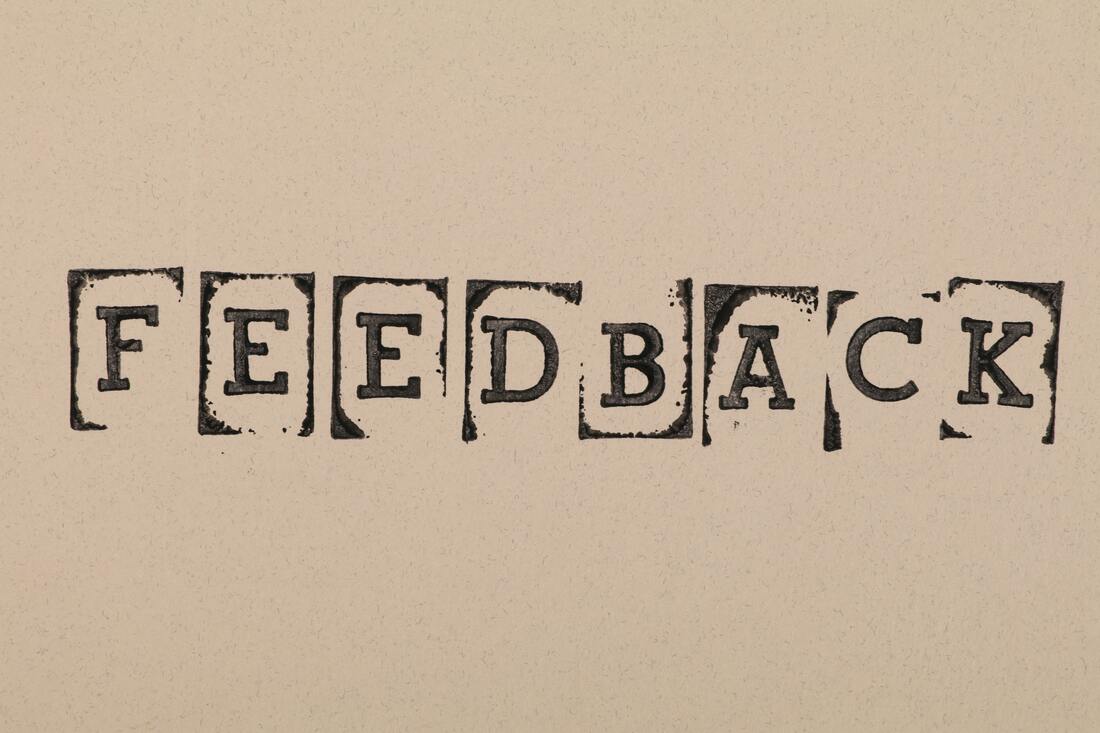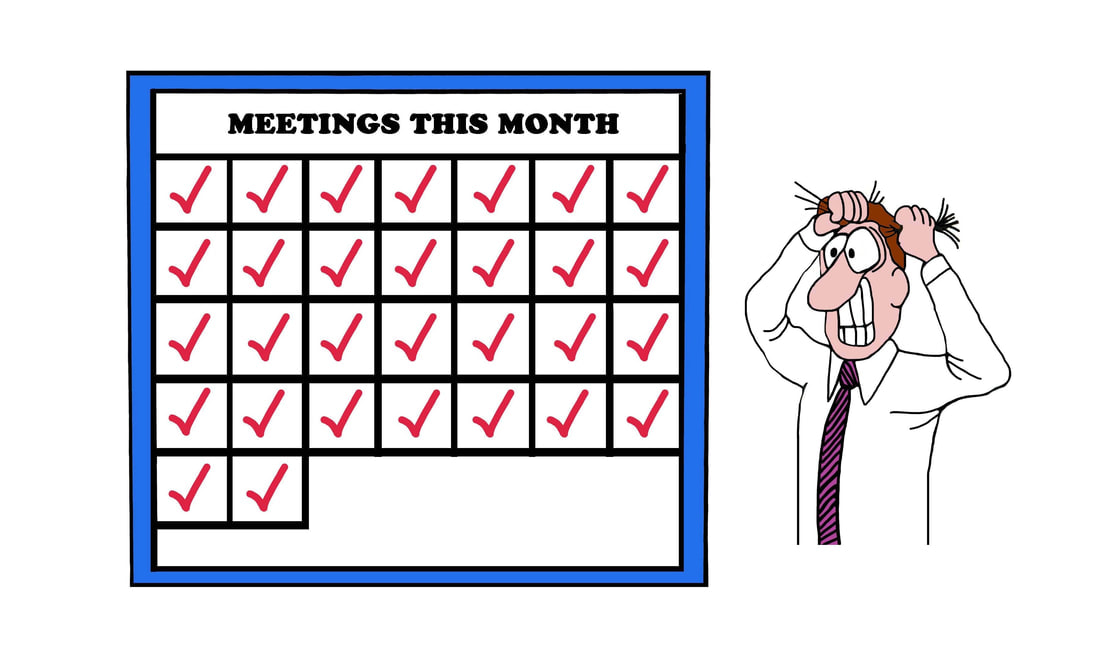|
So the good ‘ole fashioned things, like handwriting, are actually best?!
Did you ever doubt it?! Remember, the rule of anything is that if you do something different, it activates the brain differently. The question, though, is is this a good, neutral, or bad thing for the brain. With the advent of computers, and more recently tablets, we are spending less and less time handwriting. This also includes in learning environments such as at school and college.
0 Comments
A few years back I worked with a client, let’s call him Eric, who was the COO of a medium-sized, established company. I was inspired by my work with him, to write this article about how our thinking / mindset / perspective can trip us up.
Everybody has set ways of thinking about things. This is true for your private life as well as in your working environment. Where your perspective comes from and what it is based on comes usually from past experiences. By past, I mean it can come from way back, or even recent bad experiences with the last boss or partner or life in general. What matters now, in the present moment, is the awareness that these experiences exist, might be driving your behaviour and give you your perspective on things. This can form beliefs, biases, judgements and any, negative thoughts. If you are ready to start changing the results you are getting then these tips can help you challenge your thoughts. After all, Einstein says: “Insanity is doing the same thing over and over again expecting different results.”
Someone makes a choice you simply do not understand. The consequences may or may not touch your life, involve you, affect you and so on. One way or another you cannot see what they are basing their decision on. This is the part that makes accepting their choice so difficult. I am going to break this down into two parts.
Part One: Understanding Take the view that:
In the corporate landscape, our weeks are filled with situations that test our abilities, patience, and resilience. How we approach these situations can profoundly affect the outcome and our reactions.
When faced with complicated situations, we immediately label them as 'problems.' What if we started viewing these as 'challenges' instead? This subtle shift can result in a transformative mindset change. The Power of Perspective A 'problem' often carries a negative connotation, suggesting something that shouldn't exist, an anomaly that needs fixing. On the other hand, a 'challenge' implies an opportunity for growth, a hurdle that, once overcome, leads to advancement and self-improvement. Consider the difference in perspective here:
The challenge mindset is proactive, seeking growth and understanding, while the problem mindset can be limiting and reactive. Are you facing an important decision and asking yourself what to do?
Effective decision-making is a critical skill for any leader, and your choices can significantly impact your team, organisation and personal life. This 7-step process ensures that the chosen solution is the best possible outcome for all three: 1️⃣ Identify the problem or opportunity Gather all the facts and data. Analyse them thoroughly and objectively. The more facts and data you have, the more equipped you are to make an informed decision. 2️⃣ Define your criteria for success Clear criteria will help you evaluate options objectively to make an informed decision. Considering factors such as values, strengths, and alignment with your vision for the future will determine whether your decision is informed. When faced with a difficult decision it is important to know that you always have choices. It is hard to realize there is more than one solution to any given problem. One important life skill to learn is how to find those choices when faced with a difficult decision. With this skill, life becomes easier to keep in balance. More balance means less stress.
Think of a situation you are facing and see if any of the comments below can be applied: Fear of failure often stands in your way in the journey of personal and professional growth.
As a society, we view failure negatively as something that diminishes our worth or derails our progress. What if you could shift perspectives? I’m saying, view failure as an opportunity to be more faithful to yourself. When embraced with the right mindset, failure can become a catalyst for transformative change, leading you closer to the authentic leader you're meant to be. Failure Teaches You a Lesson Every failure carries a valuable lesson. Whether it's an exam, a presentation, a project that didn't meet expectations, or a strategic decision that led to unexpected outcomes, each failure serves as a teacher. Limiting beliefs are negative thoughts and assumptions that hold us back from achieving our goals and reaching our full potential. They can be deeply ingrained and often go unnoticed, but they can have a significant impact on our lives if left unchecked. In this article, we'll explore some effective ways to manage limiting beliefs and overcome your inner critic.
Identify Your Limiting Beliefs The first step in managing limiting beliefs is to identify them. Start by paying attention to your inner dialogue and noticing any negative thoughts that come up. These thoughts might include things like "I'm not good enough" or "I'll never be able to do that." Once you've identified your limiting beliefs, write them down and examine them more closely. Ask yourself whether these beliefs are based on facts or whether they are simply assumptions. We all know the feeling—angry, upset, and sad because the world is making our life less than perfect. Our boss is mean, our friends aren’t there for us, other drivers cut us off in traffic, the store clerk was rude, we got a surprise bill from the electric company. On and on, we have so many miseries that are not our fault.
Susan wrote in Feel the Fear and Do It Anyway, “We all have a tendency to look around for someone to blame if things are not working out to our liking.” Blaming others of things outside our control means we are not taking responsibility for ourselves. Blame makes us into an injured party who has no control, who lets the world beat them down, who doesn’t respect themselves, who lives in misery. In Chapter 4, “Whether You Want It or Not…It’s Yours,” Susan talks a lot about taking responsibility for our own lives. As adults, we often feel that we are burdened with lots of responsibility. But responsibility for your day-to-day living is far different than taking responsibility for how you react to your day-to-day living. ❌ I want somebody to fix the problems in my life - the right coach will question, listen, reflect and challenge you to think in new, more resourceful ways but will NOT “solve” anything for you. If you’re not committed to do the work, event the best coach can’t help.
❌ I need help with psychological issues - if you’re dealing with depression, anxiety or a mental illness, you need a trained therapist. A coach will focus primarily on your future helping you discover new ways of acting and thinking, rather than dealing too much with your past. ❌ I need a wise friend - a good coach is NOT your friend and needs to have the impartial ability to hold that bigger vision that will help you attain your full potential. Family and friends are not impartial. They are too close to your situation, which can limit their vision of your potential. ✅ Something wonderful has happened - positive change can be exciting and challenging simultaneously. Big transitions such as a new job or career, can have a huge impact on other areas of your life. This makes them the perfect opportunity to get a renewed sense of Who You Are and most want to become. ✅ Something terrible has happened - a qualified coach can provide a compassionate and safe space for you to process and learn from the struggle so you can expand and move forward. Hiring a candidate can feel like reaching the finish line of a journey. After weeks or months of recruiting efforts, you finally found the right fit. But it’s not – it’s actually the beginning of a crucial stage of your hiring process: onboarding.
“It is an incredibly vital stage of the hiring process because employees are acclimated to their position, the company’s philosophies, and what the organization has to offer during onboarding,” says Jamie Olson, Head of People & Culture at Continu, a learning amplification platform for teams. “It also increases motivation, resulting in employees who are dedicated to the company’s success, and promotes the retention of new recruits by making them feel like a part of the team.” Your onboarding process is the first impression. It can make or break the long-term chances of success of your new team member – it’s when expectations are set and important information is passed along. Olson broke down everything you need to know about how to effectively welcome a new employee to the team. Learn more in the checklist and onboarding tips below. The ultimate onboarding checklist First of all, it’s important not to “wing it.” Onboarding doesn’t consist of greeting your new report and making a few introductions before leaving them on their own. You’ll need to create a streamlined process that is consistent every time you hire someone new. Here is a checklist. Opinion: Being less or more confident of the choice that has been made cannot affect the outcome. It can, however, influence future ones. I’VE ALWAYS BEEN an indecisive person. What to wear, which menu item to pick, when to do house chores, always thinking through scenarios before committing to even the most trivial of choices.
If this sounds like you, you’re certainly not unusual: Many people struggle with these issues. Our new research may not be able to help you choose which restaurant to go to, but it might reassure you. Decisive people may be more confident in the choices they make, but they are no better at making decisions than the rest of us. The first step toward change is to acknowledge that there is a problem. One of the worst mistakes founders and execs will ever make is to hire or promote someone into a leadership role who manages through an insatiable ego as their driving force for every thought and decision.
But it happens. And when hubris becomes a stronghold in your culture, it can be the cause of much conflict and unneeded drama for employees. A quick example: Managers who destroy morale by putting themselves on a pedestal as the source for all the answers, and use it to wield power over their people. The damaging effects of hubris Research says that people exhibiting "hubristic pride" (as opposed to a more healthy and authentic pride) were found to be narcissistic, reflecting feelings of arrogance, grandiosity, and superiority. They also experienced more interpersonal conflicts and, ironically enough, were prone to shame. Truth is, these people hurt businesses in many ways. In my own observations as an executive coach, I have seen these behaviors in leaders exhibiting hubristic pride:
Sometimes it’s necessary to provide feedback, but it can be a delicate situation.
You’ve probably heard that people don’t quit jobs; they quit bosses. In today’s hiring market with record numbers of employees resigning, that may or may not always be true. But bad bosses can definitely be a factor for employees who decide to leave. “I think that a lot of people are saying, ‘Hey, I’ve been putting up with this manager for way too long. All of a sudden, we are in an incredible job market, and I’m going to take my chances and test it out and see if there is a better fit and a better opportunity available,'” says Stephanie Lovell, head of marketing for Hirect, a hiring app for tech startup founders. If you’re considering leaving your job because of your manager, consider this: What if your boss is a fixer upper? A diamond in the rough? Someone who just needs some input on how to do a better job? Giving your boss feedback may not only be a way to correct your frustration; it can be helpful for your boss, too. It can also be tricky. But instead of diving into a list of grievances, consider these steps: If You Can’t Answer “Yes” to These 8 Questions, Your Manager Needs To Do More To Support Your Career15/5/2022 Managers expect a lot from their employees, but let’s turn it around: what should employees be expecting from their managers?
Whoever manages a team doesn’t just manage their to-do list, targets and professional roles — at the end of the day, they’re dealing with people. And we all come with our own list of demands and needs, both inside and out of work. It’s time employees were put first. Not out of greed or to be spoiled, but to become more efficient, productive, engaged employees. Here’s how your manager should be supporting your lifestyle and helping you achieve your career goals. 1. Are they offering valuable wellbeing perks? A lot of times, managers get well-being in the workplace all wrong. Let’s set one thing straight: well-being can never be managed or established in only one place. If you want your employees to feel great at work, take care of them outside of work. Let’s break down what well-being is all about, first. A daily practice to realize the counterintuitive truth that when you slow down, you have more time. Most people, most of the time, move more quickly than they need to. I’m not talking about running for the bus—I mean operating with an internal imperative, an over-revved engine, an agitated nervous system and an overactive mind that makes you drum your fingers while you wait for your coffee order, fidget with your phone when there is nothing you need from it, walk as if rushing because, well, just because it’s your habit. Moving quickly, while stressful, gives us a sense of purpose, as if pace and posture are saying: “Look how busy and important I am; I have no time to hang around.” “I have so much going on,” we boast to each other, as if we would prefer it to be otherwise. We tell each other: “I really need some space,” but as soon as you have some free time, do you just sit there, surrendering to the void? No, you fill it up with doing something!
You have the power to unlock new levels of creativity you couldn’t even fathom before. Statistics show that over 20 percent of newly established businesses in the U.S. close within the first two years. That equates to around 155,000 companies, which is quite an astounding number. If you do not want your startup to be a part of these statistics, it may be time to start thinking outside the box.
One way to ignite the creative spark within you is to create mind maps. Online mind mapping is a tool that is readily available and can increase innovation. Entrepreneurial creativity is now a necessity in this changing business landscape. To survive, business people need to be adaptable and innovative. Let’s examine how mind maps can act as the key to unlocking an entrepreneur’s creative side. Develop Creative Habits People think creativity is something you are born with. However, that is not always true. Lessons from Rebekah Taussig on honoring and celebrating our bodies.
Self-acceptance is essential to self-care and our overall well-being. If we can’t accept ourselves, our well-being is going to suffer, regardless of how diligent we are about any other physical and mental health practices. Still, even with all the progress we’ve made in recent years on body positivity and mental health, the radical act of accepting ourselves for who we are has never been more challenging. Our society surrounds us with images of what supposedly healthy and perfect bodies look like. And of course, much of that is fueled by social media, which, in study after study, has been shown to damage our body image and self-acceptance. So how can we learn to accept ourselves and show up for ourselves in a way that nurtures our well-being? To begin to answer this question, I had the privilege of talking with Rebekah Taussig on a recent episode of Deloitte’s “WorkWell” podcast. Rebekah is a writer, teacher, and advocate, whose popular Instagram feed, @sitting_pretty, is filled with what she calls “Mini memoirs.” I was thrilled to talk to her about her new book, Sitting Pretty: The View from My Ordinary Resilient Disabled Body, in which she chronicles her journey to self-acceptance with her trademark candor, humor, vulnerability, and authenticity. You did it. You made it out — hopefully with some shred of sanity and sense of personal self-worth. But even if those things feel unrecoverable, they aren’t. You can get them back.
Maybe you’ve moved on to greener pastures. If that’s the case, well done. You’ve taken an important step towards preserving (or gaining back) your emotional and physical health. Maybe, although less likely, your boss either moved on or was fired. Most of the time, these situations don’t fix themselves, as for some reason senior leadership would rather keep a single toxic boss employed than the multiple high-quality employees who leave because of them. In either case, there’s a residual emotional and physical toll that lasts well beyond the end of the boss-employee relationship. I know; I’ve been there. In the span of just two years of reporting to a toxic boss, I went from being a high-performing, high-potential engineering leader to nearly leaving the company I’d spent 15 years at because of one single person. My boss. That’s how badly I needed to get away from her. Small things that tell you a lot about someone. In this article, we will talk about how to recognize subtly toxic people.
No one wants to waste time and energy around people who consistently behave in unhealthy ways and add negativity to our lives. Yet, many of us sometimes get stuck in toxic relationships that have a negative impact on our mental health and even on our self-confidence. The problem is some people may seem friendly, charming, respectful, and even emotionally mature, when we don’t know them enough. Some of their behaviors may seem inoffensive at first, while the reality is they are not, and they can actually damage relationships in the long-term. This is why it’s essential to learn to recognize these unhealthy habits. What follows are four behaviors of subtly toxic people: Feel like constant meetings are hanging you up? Set a regular meeting with yourself.
Meetings and more meetings. Just as you finish one call, you are dialing into the next one. Need to go for toilet break? Forget it -- there’s another meeting. This meeting situation was already insane before the pandemic, and it it has only gotten worse now with so many people working from home. There are dozens of articles about how to spend less time in meetings, how to reject meetings without looking bad, about 2/3 of our life being spent in meetings. All these articles trying to help us save ourselves. Yet many of us keep falling into the meeting trap. I have yet to find the magic formula for myself, however I do believe I am becoming more aware about how I am actually spending my time versus how I want to spend my time. Why you don’t learn from failure
How many times have you heard that failure is a “teachable moment?” That you learn more from failure than success? In a 2017 commencement speech, U.S. Supreme Court Chief Justice John Roberts actually wished the graduating class “bad luck,” so they’d have something to learn from. Yet my colleague Ayelet Fishbach and I find that failure has the opposite effect: It thwarts learning. In a recent study, we presented over 300 telemarketers with a quiz. The telemarketers answered 10 questions on customer service, each with two possible responses (i.e., “How many dollars do U.S. companies spend on customer service each year?” The answer choices: 60 billion or 90 billion). Some considerations about your remote working environment by Paolo Cuomo.
Just over 9,000 days ago I entered 37 Fitzroy Square, London and sat at an office desk for the first time. 380 days ago I entered the iconic Cheesegrater building and sat at an office desk for the last time. I hope it won’t be the very last, but it’s clear I won’t be back until mid-2021 at the soonest. Ignoring a project I did many years ago with night-shift supermarket workers, this is the longest by far I’ve not worked in an office. When the UK and much of the rest of the world went into “lockdown” back in March/April 2020, it all seemed rather temporary. Of the many millions conducting our work interactions via email and Zoom, most took a short-term approach to our workspace — sometimes through limited choice, sometimes through natural inertia. Sure, a new mouse or a monitor, but still just stuck in the same corner or on the dining room table. As the work from home extended, we entered the summer months with the siren song of working outside or, as in my case, spending large parts of the day on calls while walking. Thus no real reason to adjust. Now here we are a year later. Supporting employees who initially come across as timid can help these people feel comfortable at work and deliver great results for the company.
Experienced managers will have overseen teams comprising all sorts of characters and personality types, from the boldest extroverts to the quietest introverts. Commonly accepted ideas in the world of work, and society as a whole, suggest the people who speak loudest and take control of social situations are the most capable and able to deliver results. But that isn’t necessarily true. Natural introverts often have many qualities that can prove particularly valuable for businesses, so there’s a lot to be gained from supporting employees who initially come across as shy and timid. Here are some of the ways you can do that... One of the hardest jobs a leader has is giving corrective feedback to someone whose behavior is difficult, aka "the difficult employee." This person's behavior is adversely affecting the team, not just you. You've tried all the soft approaches like ignoring the behavior, making a joke about it, dropping hints -- and still he persists.
Finally the time has come to deal with this head on. You need to give him straight feedback. Most people would rather scratch their fingernails down a chalkboard than do that, but, hey, you are the leader, so it's your job. You bravely say yes, but wonder privately if, by talking to him straight, you're going to make things even worse. What if you could give this feedback to him in a way that would solve the problem and even enhance your working relationship with him? What if he would actually thank you at the end of the conversation, grateful that you cared enough to talk to him about it? This is possible! Here are 5 steps to follow in order to to make the biggest difference possible. You might consider experimenting with these steps also when the stakes are lower, BEFORE an employee get labeled as "difficult." 1. Prepare for the conversation ahead of time.
|


























 RSS Feed
RSS Feed